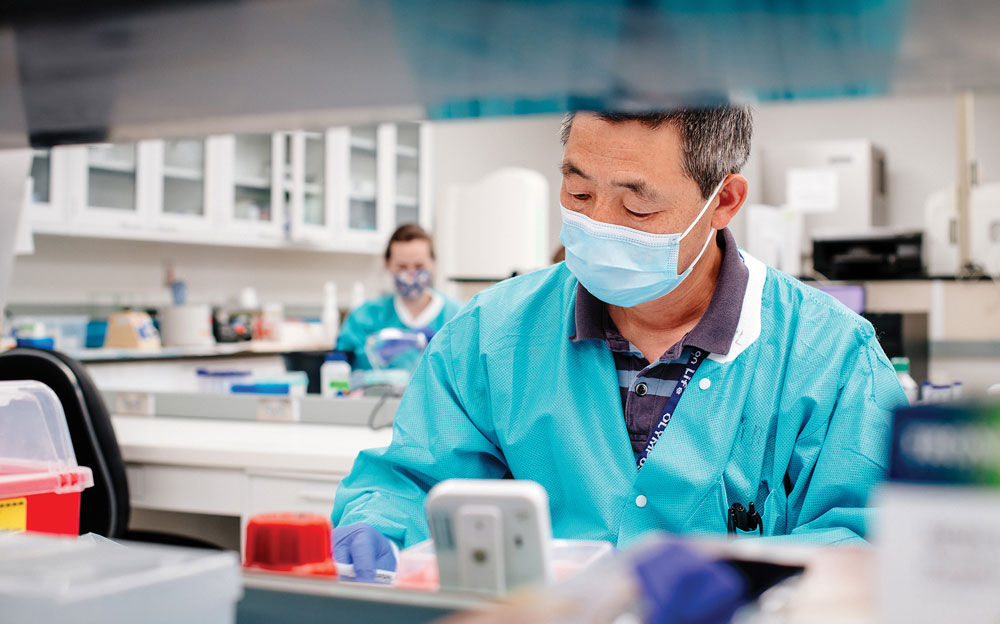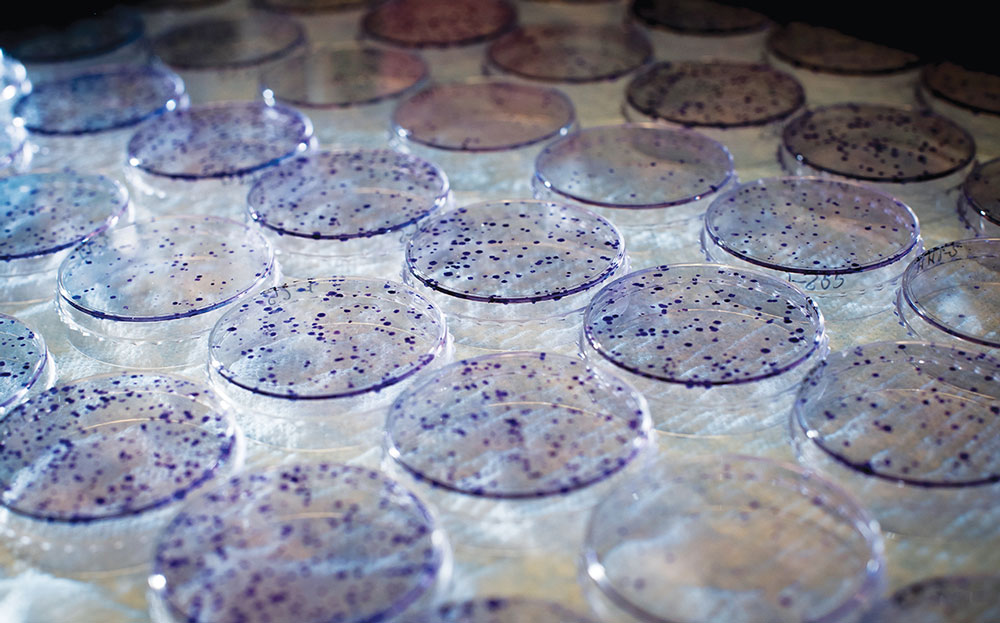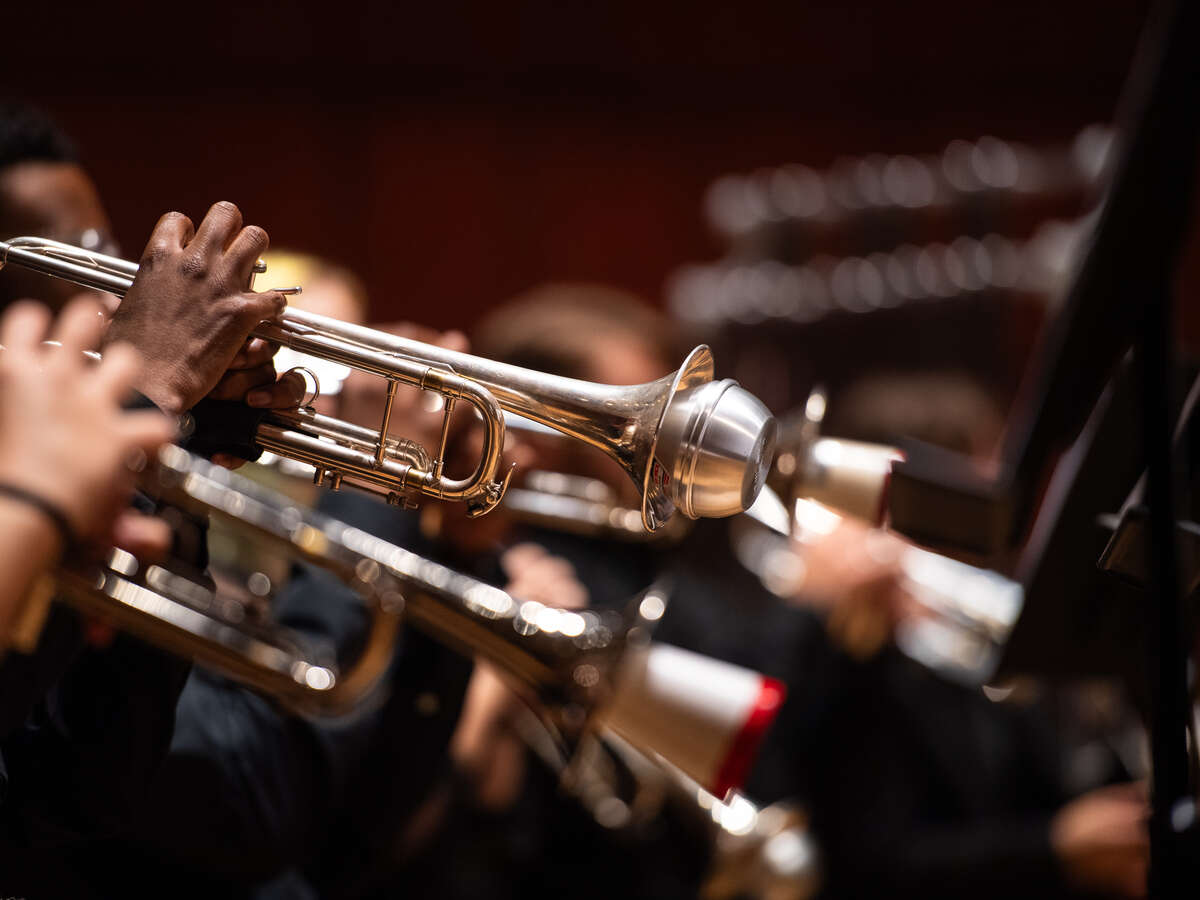 Over the past 12 years, the UAB College of Arts and Sciences and the Marnix E. Heersink School of Medicine established five interdisciplinary undergraduate programs to promote STEM and biomedical majors and increase the future pipeline of highly skilled workers. The shared programs include: neuroscience, bioinformatics, genetics and genomic sciences, immunology, and cancer biology.
Over the past 12 years, the UAB College of Arts and Sciences and the Marnix E. Heersink School of Medicine established five interdisciplinary undergraduate programs to promote STEM and biomedical majors and increase the future pipeline of highly skilled workers. The shared programs include: neuroscience, bioinformatics, genetics and genomic sciences, immunology, and cancer biology.
“The founding goal of these programs was to bring innovative majors to Alabama’s brightest students to build the next generation of the biomedical workforce,” said Cristin Gavin, Ph.D., assistant dean for the Undergraduate Biomedical Programs in the Heersink School of Medicine and co-director of the Undergraduate Neuroscience Program. “UAB’s intensive research environment spans both schools and provides the perfect ecosystem for high-impact practices such as undergraduate research and collaborative learning.”
Immunology
History
The Undergraduate Immunology Program was approved in 2016 and offered its first round of classes in 2017. It is an interdisciplinary program between the Department of Microbiology in the Heersink School of Medicine and the Department of Biology in the College of Arts and Sciences. Prior to launching the undergraduate program, UAB only offered graduate-level degrees in immunology.
“It made sense to extend our reach to undergraduates and build grassroots-level knowledge of immunology,” said Undergraduate Immunology Program Director Louis Justement, Ph.D.
Significance
Immunology is the study of the immune system, which protects the human body against pathogens and toxins. However, “the immune system can kill you any day if it is dysregulated,” said Justement. Therefore, understanding how the immune system works and its potential impact on the human body is crucial.
After two years of battling the COVID-19 pandemic, the importance and life-saving potential of studying the immune system has been significantly amplified. “Vaccines are a great example of immunologic success,” said Justement. “If that isn’t impactful, it’s hard to say what truly is.” Along with vaccines, immunology can also support early detection and treatment of cancer.
 Curriculum
Curriculum
Immunology is interdisciplinary by nature and has direct ties with the fields of biochemistry, cell biology, cancer biology, infectious diseases, neurobiology, endocrinology, and cardiology. “All of these topics are woven into the immunology curriculum,” said Rueben Burch, an alumnus of the immunology program who currently works at a biotechnology company in Seattle. The program’s curriculum is a sequenced path consisting of seven courses and research opportunities. Some of the required courses include "Introduction to Immune System," "Immunologically-Mediated Diseases," and "Microbial Pathogen-Immune System Interaction." Students are also required to participate in undergraduate research to help them acquire knowledge and skills in experimental design, data analysis, scientific writing, and oral presentation.
Heather Bruns, Ph.D., co-director of the program, worked alongside Justement to build a four-year comprehensive undergraduate curriculum. “As we identified the knowledge and competencies that we wanted our students to possess, it was also important to us to include appropriate assessments in the curriculum to ensure that the program was providing an effective learning environment,” said Bruns.
Since it is a relatively small program, students receive quality, hands-on mentorship from faculty. Kristine Farag, an alumnus of the program who is now enrolled at the Indiana University School of Medicine, sought and found valuable mentorship from Bruns.
“Immunology program directors truly want to see their students succeed in every capacity, and they put in the time and effort to make that happen,” said Farag.
Careers
Studying the immune system can be a valuable option for those who have an interest in health professions and biomedical research. Graduates of the program may go on to pursue a variety of careers, including research, medicine, science policy, science communication, and medical technology.
Hollis Graffeo, a current immunology major, chose immunology because she is interested in becoming a physician, and the same is true for many of her fellow classmates. Additionally, the sheer uniqueness of the program was attractive to her.
“UAB is the only school in the country that offers the immunology [undergraduate] major, and [I think] this will make me stand out greatly as an applicant when I apply to medical school,” said Graffeo.
Learn more about the immunology major at UAB.
Cancer Biology
History
The Bachelor of Science in Cancer Biology at UAB officially launched in Fall 2020. The program is an interdisciplinary partnership between the Department of Chemistry in the College of Arts and Sciences and the Department of Cell, Developmental, and Integrative Biology in the Heersink School of Medicine. These two departments initiated the cancer biology program because, “chemistry and cancer pair nicely together given the importance of chemical structure and drug discovery,” said Sadanandan Velu, Ph.D., co-director of the Undergraduate Cancer Biology Program.
“Starting a program during the COVID-19 pandemic was certainly not ideal and unanticipated,” said Braden McFarland, Ph.D., co-director of the program. “However, everyone was on their computers and social media during that time, and the word spread about our program through cyberspace very quickly.”
The program started with 13 students in Fall 2020 and has grown significantly. Currently, the directors anticipate 90 students in Fall 2022.
 Significance
Significance
Cancer biology focuses on the mechanisms underlying fundamental processes such as cell growth, the transformation of normal cells to cancer cells, and their spread.
Cancer is a leading cause of death worldwide, so its reach and impact is profound. “No matter the health profession, one will encounter cancer in their profession and their personal life,” said McFarland.
Therefore, understanding the risks, early detection, and development of new therapies to combat cancer deaths is vital. Through the cancer biology program, students gain foundational knowledge of what cancer biology is and its application to cure and advance cancer research.
Curriculum
The program provides a strong educational and research background. Velu explains that the academic training in this program is reinforced with a required research component, which provides students with early exposure to cancer research.
Cancer biology majors participate in investigator-led programs in high-profile cancer research labs, the majority of which are in the O’Neal Comprehensive Cancer Center—the only National Cancer Institute-designated cancer center in Alabama.
Students can participate in research in any lab on campus with a focus on cancer. This includes basic or clinical research, as well as cancer nutrition or epidemiology. “Our current students have a palpable energy to learn everything about cancer, which is usually due to personal or family experiences with cancer,” said McFarland.
Careers
The UAB Undergraduate Cancer Biology program prepares students for academic and industrial career opportunities in cancer biology and life sciences, and it is a launch pad for students who want to research, treat, and fight cancer.
Specifically, the program prepares students to excel in a variety of medical fields such as medicine, dentistry, optometry, physician training, and physician assistance. After completing the program, students might also pursue careers in biomedical research, pharmaceutical and biotechnology industries, veterinary sciences, medical technology, and public health policy.
“Excellent faculty mentoring and career counseling are provided to students to identify graduate and professional programs or job opportunities most suited to their interests,” said Velu.
Some students choose cancer biology for reasons beyond professional success. For example, Neeral Patel, one of the first cancer biology students at UAB, chose cancer biology because he watched his mother battle both ovarian and breast cancer growing up.
“Birmingham became a second home to me, as our family would frequent UAB for my mom’s appointments and treatments. My mom’s battle is what initially sparked my interest in the medical field,” said Patel. “Although it is extremely early to know, this program has prepared me well in all things cancer. I look forward to exploring different specialties, while carrying all of the academic and non-academic skills this program and its faculty have taught me.”
Learn more about the cancer biology major at UAB.


